| |  | | | Dept. of Homeland Security Funds Terror-Linked Groups; What to Do About Yemen; Understanding Syria By Winfield Myers ● Jul 21, 2025 Smart Brevity® count: 7 mins...1890 words A new MEF Report co-authored by Benjamin Baird and Anna Stanley reveals that the Department of Homeland Security has awarded over $25 million to radical nonprofits, many with documented links to terrorist groups. "Homeland Insecurity: Unraveling DHS Funding of Terror-Linked and Extremist Groups" offers a detailed account of grants to such Islamist organizations as the Council on American-Islamic Relations, the Islamic Circle of North America, and radical mosques in Michigan and Texas. Two articles by Michael Rubin draw on his recent trip to Yemen. To counter the Houthis, who continue to attack shipping in the Red Sea, Rubin advocates a new U.S. approach, including moving the U.S. embassy for Yemen to … Yemen. We'll have more on Michael's trip in future issues. Aymenn Jawad Al-Tamimi offers commentary on the ongoing sectarian violence in al-Suwayda' province in southern Syria along with translations of primary source documents on the conflict, demonstrating again his ability to produce informed first-hand commentary from that war-torn country. | | MEF Report Reveals DHS Hands Millions to Terrorist-Linked Groups The Middle East Forum's latest study, "Homeland Insecurity: Unraveling DHS Funding of Terror-Linked and Extremist Groups," uncovers over $25 million in Department of Homeland Security (DHS) grants to radical nonprofits linked to terrorist organizations from 2013 to 2024. Why it matters: Taxpayer dollars intended for security are instead funding extremism, highlighting the need for reform. The stakes: DHS programs have funneled millions to groups with extremist connections, prompting calls for oversight and reform. What's next: MEF continues to expose government waste and urges reforms to prevent funding extremism. To read the full report, click here; to read the press release, click here. | | ICYMI - "Syria after Assad: Shifting Sands" with Joel Parker 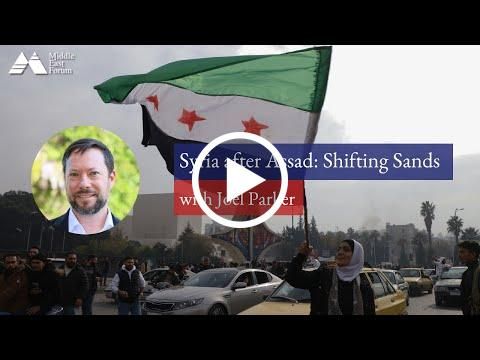 In southern Syria, the Druze community—split between pro- and anti-Damascus factions—has long navigated alliances amid local Sunni Arabs and shifting regime forces, all entangled in the remnants of Iran's "Axis of Resistance." Yet, Israel's evolving policies over the past few months, from its support for religious and ethnic minorities to tentative outreach toward Damascus's new government, have complicated efforts to dismantle Iranian influence via Hezbollah and lingering Assad loyalists. With the drug trade persisting as a survival lifeline amid economic woes, pushing for decentralization, Israel's initial strategies inadvertently bolstered former Assad regime elements with ties to Hezbollah. How has this intricate web of local actors and illicit economies shaped Syria's post-Assad landscape? What do Israel's contradictory approaches mean for curbing Iran's proxies, stabilizing the border, and resolving the region's unresolved tensions? Joel D. Parker is a researcher at the Moshe Dayan Center for Middle East and North African Studies at Tel Aviv University. His work focuses on contemporary Syria, the Levant, radical politics, jihadi ideology and music, and youth movements in the 20th century. He is regularly cited across a number of print and broadcast publications and he is a regular commentator on Israeli, Syrian, Arab, and Levantine politics. He holds an M.A. in Middle East History from Tel Aviv University. To watch the full podcast episode, click here. | | Move the U.S. Embassy for Yemen to Yemen 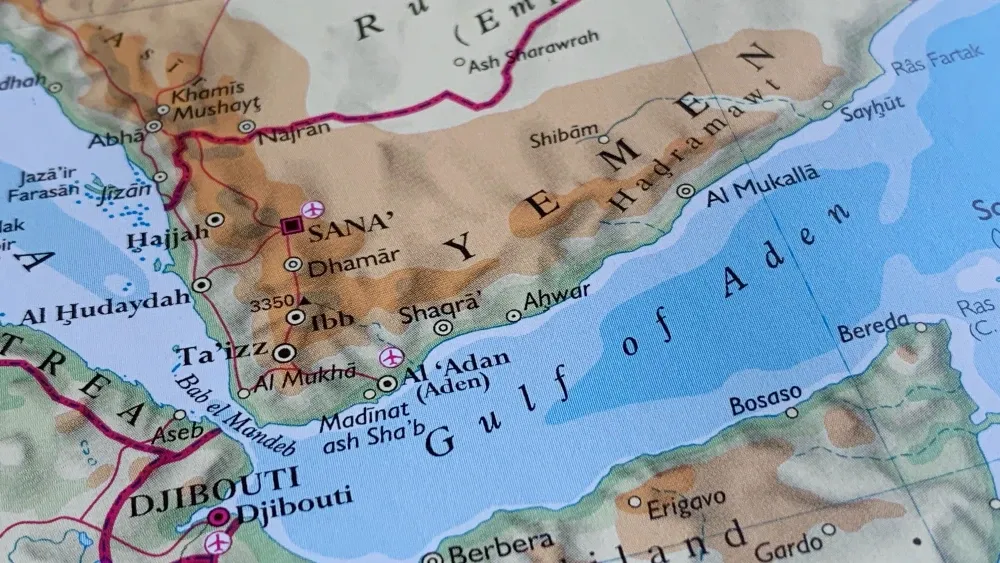 By: Michael Rubin The U.S. Embassy for Yemen operates remotely from Riyadh, Saudi Arabia, nearly 850 miles away. Geographically, that is akin to running the U.S. Embassy for the U.K. from Zagreb, Croatia. Why it matters: Yemen is a key front in the battle against Iranian proxies and illiberal forces. The stakes: Secretary of State Marco Rubio has sliced through the State Department's ossified bureaucracy with an axe in the justification that a new era requires more agile diplomacy. What's next: The United States can neither influence nor rebuff great power rivals if it refuses to be present. In the case of Yemen, blaming the bureaucracy is unfair. To read the full article, click here. | | The U.S. Needs a New Yemen Strategy 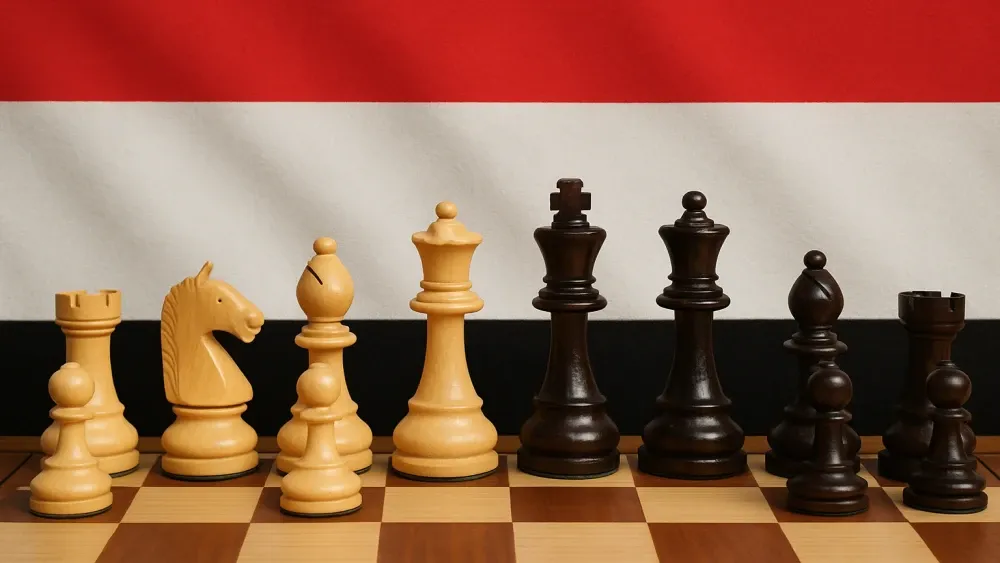 By: Michael Rubin American and U.N. strategies in Yemen have faltered, with the Houthis continuing their attacks and threats in the region. Why it matters: Previous efforts, including sanctions and the Stockholm Agreement, have failed to stop Houthi arms smuggling and aggression. The stakes: Secretary of State Marco Rubio must establish a U.S. Embassy in Aden to engage directly with Yemenis. What's next: Empowering the Southern Transitional Council and acknowledging the need for self-governance in northern Yemen could lead to peace. -
Success requires understanding that Iran is not the only country helping the Houthis; Oman supports the group as a lever against southern Yemeni rivals, while Saudi Arabia would rather keep Yemen boiling than have Riyadh's Emirati rivals benefit. -
It is time to call out both Oman and Saudi Arabia until they again put the Houthis' defeat first. To read the full article, click here. | | Announcing MEF's Internship Program Apply for the Middle East Forum's internship program to gain hands-on policy and research experience. Contribute to MEF's advocacy while building skills for a career in think tanks or government. -
Sessions: Fall (Sep–Dec), Winter (Jan–Apr), Summer (May–Aug) -
Commitment: 10 hrs/week, hybrid (on-site/remote) -
Eligibility: Undergrad/grad students in history, political science, Middle east studies, public policy, or related fields; strong research, writing, and analytical skills -
Program: Virtual orientation, project work, workshops, networking, and a capstone project -
Benefits: Professional development budget, D.C. policy conference tickets, MEF event access To apply: Send cover letter & resume to internship@meforum.org To learn more, click here. | | Misconceptions on the Fighting in Al-Suwayda'  By: Aymenn Jawad Al-Tamimi Ongoing clashes in al-Suwayda' highlight the dangers of misconceptions and media simplifications amid the complex tribal and Druze tensions. Why it matters: Misleading narratives exacerbate tensions and obscure the realities on the ground. The stakes: The buck stops solely with the government to prevent its forces from committing violations against civilians. Not only has it manifestly failed in this regard, but it has contributed further to the flames by allowing and commending mass tribal militia mobilization as a pressure tool on al-Suwayda', only adding to violations. What's next: Critical engagement with the government is the way forward, rather than measures like reimposing harsh sanctions or relisting al-Sharaa as a 'terrorist' when the country is in dire need for economic stabilization and recovery. -
Nonetheless, it is simply not good enough for the state to have a good record with some minority communities while its forces and loyalist militias (tribal or otherwise) engage in extensive violations against other minority communities with little to no real accountability. -
But if you find yourselves essentially echoing crude social media talking points that are contributing to incitement and escalation of tensions within the country, please reconsider what you are putting out. To read the full article, click here. | | Layth Al-Balous' Statement on Events in Al-Suwayda'  By: Aymenn Jawad Al-Tamimi Layth al-Balous, son of Rijal al-Karama founder, has issued a statement on the turmoil in al-Suwayda' amid ongoing clashes. Aymenn Jawad Al-Tamimi offers a commentary and translation of the statement. Why it matters: His statement addresses misconceptions about Druze factions and the role of external influences in Syria's conflict. The stakes: Layth calls for accountability and state responsibility in protecting civilians from violations. What's next: The statement urges a unified Syrian response to external threats and internal divisions. -
It also highlights the vandalism of his father's guesthouse as a symbol of ongoing tensions. -
However, while supporters of the government frequently uphold Layth as "the good Druze" and tout him as a future senior leader of the Druze community, he has likely lost a considerable amount of credibility among the Druze of al-Suwayda', with many holding him responsible for bringing 'terrorists' into the province and thus enabling the violations committed against the Druze population. To read the full article, click here. | | The Recent Violence in Al-Suwayda' Province and the Joint Statement of Compromise 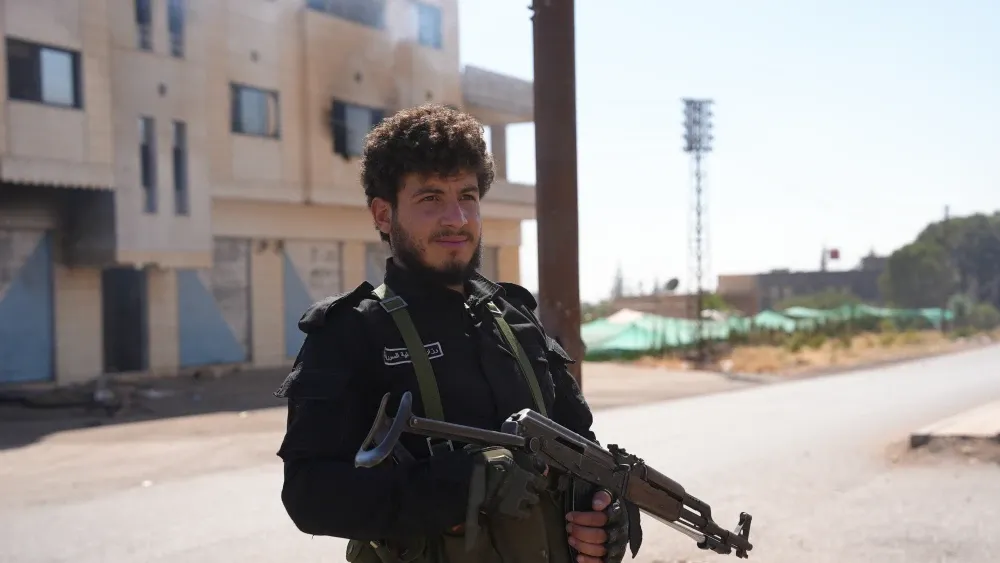 By: Aymenn Jawad Al-Tamimi The recent violence in al-Suwayda' highlights a complex interplay between local Druze factions and external forces. Aymenn Jawad Al-Tamimi translated and commented on the Joint Statement of Compromise. Why it matters: The clashes began over tit-for-tat kidnappings and escalated with the involvement of external security forces. The stakes: The central government's strategy in al-Suwayda' may influence negotiations with the Kurdish-led SDF. What's next: The dynamics in al-Suwayda' could set a precedent for broader Syrian government strategies. To read the full article, click here. | | Why Tom Barrack Is Wrong on Syria 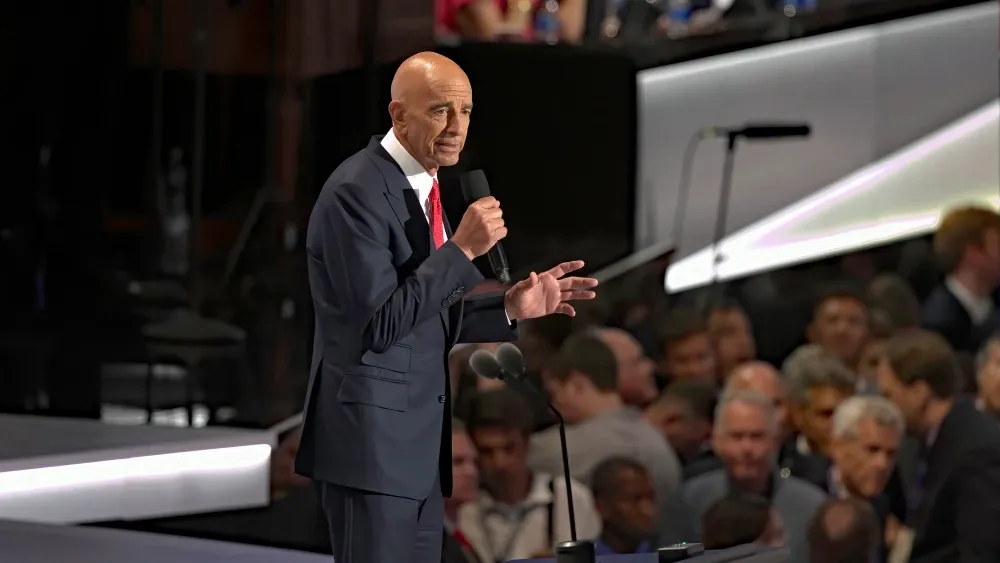 By: Kamal Chomani Tom Barrack, U.S. ambassador to Turkey and special envoy for Syria, recently condemned federalism in Iraq and Syria, ignoring historical lessons and risking further instability. Why it matters: Barrack's statement dismissing federalism as a solution for Syria and Iraq plays into the hands of authoritarians and Islamist factions alike. Centralization has consistently led to authoritarianism and state failure. -
Barrack also does not consider why Kurds should abandon what they have in order to surrender into a "one country, one nation, one military" system that has always ended in ethnic cleansing. -
Diverse communities in northern Syria thrive under a decentralized administration, not ethnic federalism. The stakes: Barrack is right that Kurds should aim to integrate into the governments in Baghdad, Ankara, Damascus, and even Tehran, but into what does he expect the Kurds to integrate? -
Even more troubling is the silence surrounding the Druze in Suwayda, who continue to face repression. If Washington is committed to a pluralistic, stable Syria, then how can it ignore these abuses while lecturing Kurds about "integration"? What's next: Kurdish sacrifices are often seen as disposable by the U.S., risking broader regional implications. -
The price of Barrack's mistake and his faith in autocratic Islamists, however, will not be paid only in Kurdish lives. -
A decentralized approach could prevent the resurgence of extremist groups and strengthen local governance. To read the full article, click here. | | Thank you for relying on the Middle East Forum for up-to-date analyses of the region. If you enjoyed this issue of the MEF Dispatch, please forward it to a friend. We invite you to use the comments feature to let us know your thoughts on the Dispatch and the issues we cover. Sincerely, Winfield Myers
Managing Editor, Middle East Forum
Director, Campus Watch | | | | Was this edition useful?  

Your email will be recorded and shared with the sender |        MEF, an activist think tank, deals with the Middle East, Islamism, U.S. foreign policy, and related topics, urging bold measures to protect Americans and their allies. Pursuing its goals via intellectual and operational means, the Forum recurrently has policy ideas adopted by the U.S. government.
Copyright © 2024 Middle East Forum, All rights reserved.
Our mailing address is:
Middle East Forum
1650 Market Street, Suite 3600
Philadelphia, PA 19103 | | | | | Powered by 
| | This email was sent by Middle East Forum via Axios HQ | | | |
0 коммент.:
Отправить комментарий